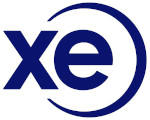A period of recession followed the Asian economic crisis in the late ’90s and two successive droughts, which caused the country’s export market to fall dramatically. However, the economy is now on an upward trend and GDP growth was 3.5 per cent in 2003 and 4.8 per cent in 2004, with an inflation rate contained within the Reserve Bank of New Zealand’s target range of 0 to 3 per cent (1.8 per cent in 2003 and 2.4 per cent in 2004).
New Zealand has fewer extremes of wealth and poverty than many other developed countries, with a large middle class and comparatively few poor people, while incredibly wealthy people are rare enough for them to be ‘famous’ (or notorious). New Zealanders are generally restrained when discussing money, much the same as the British, although the ’80s saw the creation of a ‘yuppy’ class who did well in business and the professions, and didn’t mind flaunting their wealth.
The New Zealand banking and financial sector is modern and efficient. For example, it’s possible to clear cheques virtually instantaneously in New Zealand – something which isn’t even possible in the UK or USA (although this is a deliberate policy on the part of banks in these countries). Wide use is made of electronic banking, rather than shuffling pieces of paper around the country, and New Zealanders have taken enthusiastically to the cashless economy – the use of credit, debit and electronic-funds-transfer-at-point-of-sale (EFTPOS) cards is widespread, while cheques are becoming much less popular. This isn’t because New Zealanders are enthusiastic about credit, but simply that it’s so convenient. The banking sector is dominated by a relatively small number of large institutions, although there is quite a lot of competition.
When you arrive to take up residence in New Zealand, it’s advisable to have a bank account already in place with funds on deposit, plus some New Zealand currency for immediate use. If you’re planning to invest in property or a business in New Zealand financed with funds from abroad, it’s important to consider both the present and possible future exchange rates (don’t be too optimistic). On the other hand, if you earn your income in New Zealand dollars, this may affect your commitments abroad, particularly if the New Zealand dollar weakens.
If you plan to live and work in New Zealand you should ensure that your income is (and will remain) sufficient to live on, bearing in mind the cost of living. If you’re receiving a pension from abroad, you should be cautious, as you will be at the mercy of not only exchange rate fluctuations, but also the fact that pensions are usually calculated according to the cost of living in your home country and may be inadequate to support you in New Zealand.



